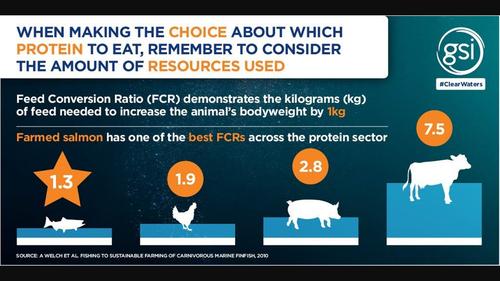Our official English website, www.x-mol.net, welcomes your feedback! (Note: you will need to create a separate account there.)
‘Finprint’ technopolitics and the corporatisation of global food governance
Area ( IF 2.057 ) Pub Date : 2023-10-14 , DOI: 10.1111/area.12907 Sarah J. Martin 1 , Charles Mather 2
Area ( IF 2.057 ) Pub Date : 2023-10-14 , DOI: 10.1111/area.12907 Sarah J. Martin 1 , Charles Mather 2
Affiliation

|
Our concern in this paper is the environmental ‘footprinting’ of food and its role as a source of technopolitical power in global food governance. Our case is the highly industrialised farmed salmon sector which currently generates metrics and carefully curated visualisations to promote this fish as a more sustainable and ‘climate friendly’ protein relative to animal protein produced on land. We show how these metrics and visualisations depend on an industrial production and measurement infrastructure. Significantly, this infrastructure and the metrics that it generates is being promoted as a ‘climate smart’ solution to small-scale and extensive aquaculture in the Global South. Salmon aquaculture industry proposals for the transfer of technology from salmon farming to global aquaculture are explicitly articulated in global food governance and other institutional spaces. While there may be frictions in the transfer of salmon aquaculture's infrastructure of measurement to aquaculture in the Global South, our analysis suggests that environmental footprinting of food—and its associated measurement infrastructure—may be an emerging source of technopolitical power in increasingly corporatised global food governance systems.
中文翻译:

“Finprint”技术政治与全球食品治理的公司化
我们在本文中关注的是食品的环境“足迹”及其作为全球食品治理中技术政治力量来源的作用。我们的案例是高度工业化的养殖鲑鱼行业,该行业目前生成指标和精心策划的可视化,以将这种鱼推广为相对于陆地生产的动物蛋白而言更可持续和“气候友好”的蛋白质。我们展示了这些指标和可视化如何依赖于工业生产和测量基础设施。值得注意的是,这种基础设施及其生成的指标正在作为全球南方小规模和粗放水产养殖的“气候智能”解决方案得到推广。鲑鱼水产养殖业关于将鲑鱼养殖技术转让到全球水产养殖的建议在全球粮食治理和其他机构空间中得到了明确阐述。虽然鲑鱼水产养殖的测量基础设施向南半球水产养殖的转移可能存在摩擦,但我们的分析表明,食品的环境足迹及其相关的测量基础设施可能是日益公司化的全球食品治理中技术政治力量的新兴来源系统。
更新日期:2023-10-15
中文翻译:

“Finprint”技术政治与全球食品治理的公司化
我们在本文中关注的是食品的环境“足迹”及其作为全球食品治理中技术政治力量来源的作用。我们的案例是高度工业化的养殖鲑鱼行业,该行业目前生成指标和精心策划的可视化,以将这种鱼推广为相对于陆地生产的动物蛋白而言更可持续和“气候友好”的蛋白质。我们展示了这些指标和可视化如何依赖于工业生产和测量基础设施。值得注意的是,这种基础设施及其生成的指标正在作为全球南方小规模和粗放水产养殖的“气候智能”解决方案得到推广。鲑鱼水产养殖业关于将鲑鱼养殖技术转让到全球水产养殖的建议在全球粮食治理和其他机构空间中得到了明确阐述。虽然鲑鱼水产养殖的测量基础设施向南半球水产养殖的转移可能存在摩擦,但我们的分析表明,食品的环境足迹及其相关的测量基础设施可能是日益公司化的全球食品治理中技术政治力量的新兴来源系统。



























 京公网安备 11010802027423号
京公网安备 11010802027423号